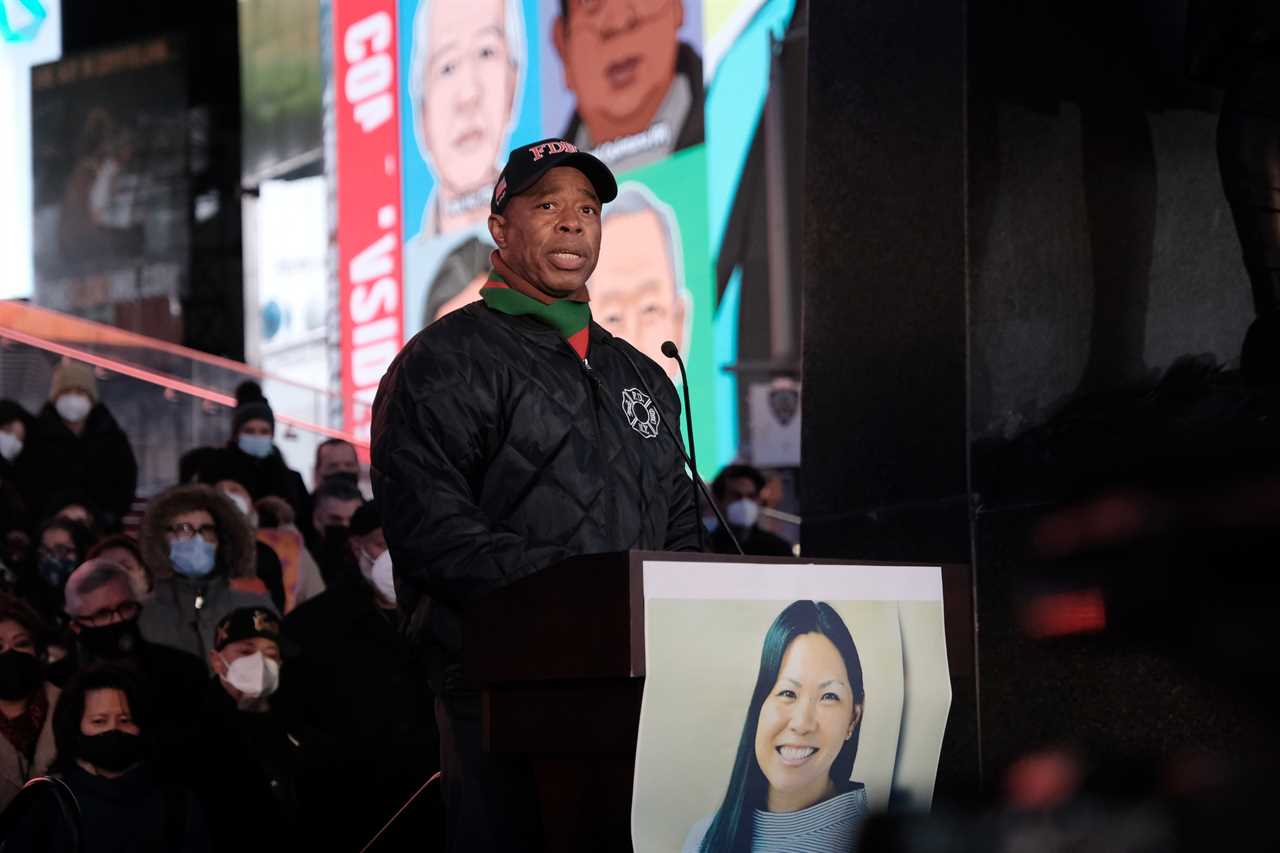
NEW YORK — Attacks on Asian American New Yorkers have become so prevalent since the pandemic began that a lawmaker is calling on the governor to declare a state of emergency.
One woman was shoved in front of a subway train. A senior citizen was punched in the face by an assailant who reportedly told police Chinese people “look like measles.” Another woman was stabbed 40 times in her Chinatown apartment — and a “Stop Asian Hate” memorial left in her honor smashed by vandals.
“The community feels a lot of anger, as well as fear, every time they leave the house,” Assemblymember Ron Kim (D-Queens), the lawmaker proposing the state of emergency, said in an interview.
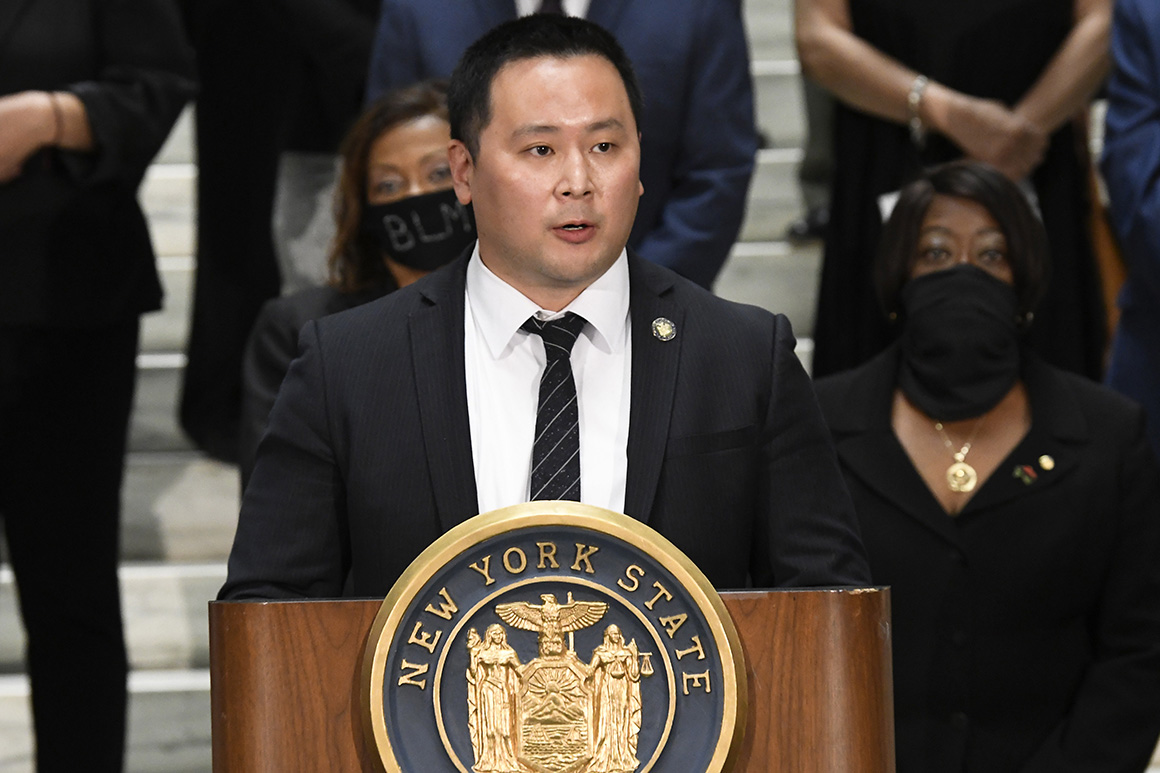
Kim and other Asian American leaders and elected officials say their community is at a breaking point. Hate crimes against Asian New Yorkers quadrupled last year and many other attacks went unreported — or simply weren’t classified as hate crimes.
Some are hopeful that Mayor Eric Adams, a Democrat who won his office with a tough-on-crime message, is taking the issue more seriously by implementing changes at the NYPD.
But the new mayor, a former NYPD captain, faces longstanding issues of trust between the police and the community with some critics saying the NYPD hasn't taken hate crimes seriously enough. Adams is also up against a narrow legal standard that’s hard to prove in court because hate crimes require evidence that a perpetrator used a slur or demonstrated other blatantly racist behavior. Finally community leaders point to a lack of services for perpetrators, many of whom are homeless.
“Our community is so vulnerable at this point that we’re not sure if we can handle more. We’re just very afraid,” said Ben Wei, founder of the nonprofit group Asians Fighting Injustice. “Some of our claims have just not been taken seriously by law enforcement.”
There were 131 hate crimes targeting Asians in New York last year compared to 28 in 2020 and just one in 2019, according to NYPD statistics. The increase has continued so far this year, with ten offenses logged in January and February compared to four in the same period last year.
But for many Asian Americans, those alarming statistics do not capture the true scope of the violence that has rocked their community. Asian New Yorkers have faced a long string of unprovoked attacks by strangers, many of which were not classified as bias crimes. Even some of the most high-profile assaults and killings, such as the death of the woman shoved in front of a train, have not been designated as acts of hate.
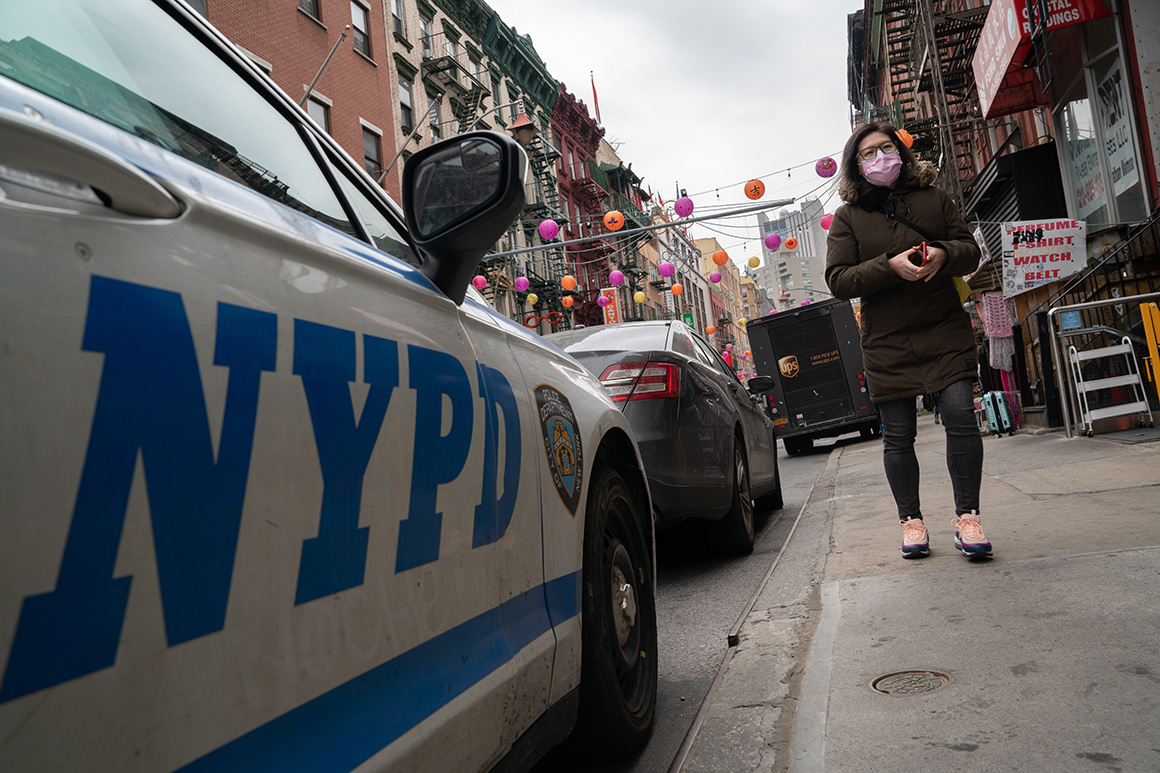
Frustration has been building over the NYPD’s handling of the cases, with critics saying cops have been too quick to dismiss hate as a potential motive.
Adams agrees, and recently ousted the head of the NYPD’s Hate Crime Task Force, saying he wants to take a more aggressive approach.
“When I sat down with the members of the community, they were very concerned on how we were designating these crimes as hate crimes,” he said Monday at an unrelated press conference in the Bronx. “We took immediate action. I had new leadership over at the hate crime unit to send the right message. We’re not going to try to cover this up.”
In explaining the ouster last month, Adams said: “I thought we were too slow in designating, investigating something as a potential hate crime. And I wanted to make sure that someone was in charge of the unit that understood my vision.”
The overhaul followed the case of Esther Lee, who said a man called her a “carrier” on a subway train and spit on her twice in October after becoming irate when he tried to give her a fist bump and she declined. Police initially refused to investigate the incident as a hate crime despite her repeated complaints, until it was reviewed by a civilian panel and reclassified.
“How many more of us need to be sliced with a box cutter, bashed in the head with a rock, or more recently punched over 125 times before it gets labeled a hate crime?” Lee said last week at a rally in Times Square. “How many more cases like mine are taking place every day with the NYPD brushing it off?”
Lee said in an interview that, after the attack, she has experienced hyperventilating, shaking and panic attacks, and started seeing a therapist for the first time in her life. She still rides the subway, but stands on the platform with her back to the train so she can see who is coming.
“What it’s doing to the Asian community is that we’re all on pins and needles,” she said. “Everybody’s incredibly vigilant.”
Adams also cited the case of a Korean diplomat punched in the face in Manhattan in an unprovoked attack. The suspect said nothing. “If someone struck a Korean individual that was walking down the block in Manhattan, a dignitary, for no other reason than how he looked, and we don’t designate it as a possible hate crime, I’m troubled with that,” Adams said.
Asian American leaders said they’re cautiously optimistic that the shake-up will signal a new approach. Still, pressure is building on Adams two and a half months into his term to deliver on his central campaign promise of keeping New Yorkers safe.
“We understand that part of this is an inherited problem, and we believe that this problem runs deeply. If short-term fixes were the answer, I think it would have been fixed by now,” Wei said. “The mayor’s trying. He’s trying to listen. There’s a lot more work that needs to be done.”
Adams replaced the head of the NYPD’s Hate Crime Task Force with Andrew Arias, a deputy inspector who previously led an investigation into arrests made during protests and looting incidents in 2020. The task force, previously run by Inspector Jessica Corey, is charged with investigating bias-based crimes.
Asian American Federation executive director Jo-Ann Yoo said she recently spoke to Arias and was encouraged by what she heard. “More than anything else, we need to build a trust relationship between the NYPD and the community,” she said.
The wave of violence against Asian New Yorkers began not long after the Covid-19 pandemic in 2020, enabled in part by the rhetoric of then-President Donald Trump, who blamed China for the virus.
A backlash was expected, said Wellington Chen, executive director of the Chinatown Partnership, an economic development group. But he added: “It’s far worse than anybody thought.”
Hoa Nguyen, 68, was walking to the grocery store near her home in Clinton Hill, Brooklyn, in January when a stranger punched her in the face and head with no provocation. The perpetrator, who was charged with a hate crime, allegedly told police he does not like how Chinese people look and said they “look like measles.”
“I’m afraid now,” said Nguyen, who is originally from Vietnam and has lived in the United States for four decades. She used to spend a few hours every day walking for exercise, but no longer does since the attack. “I’m afraid to walk outside. I still walk, but not far.”
A survey of Asian seniors released Tuesday by Asian American Federation found that 75 percent fear leaving their homes due to the anti-Asian violence that has plagued the city.
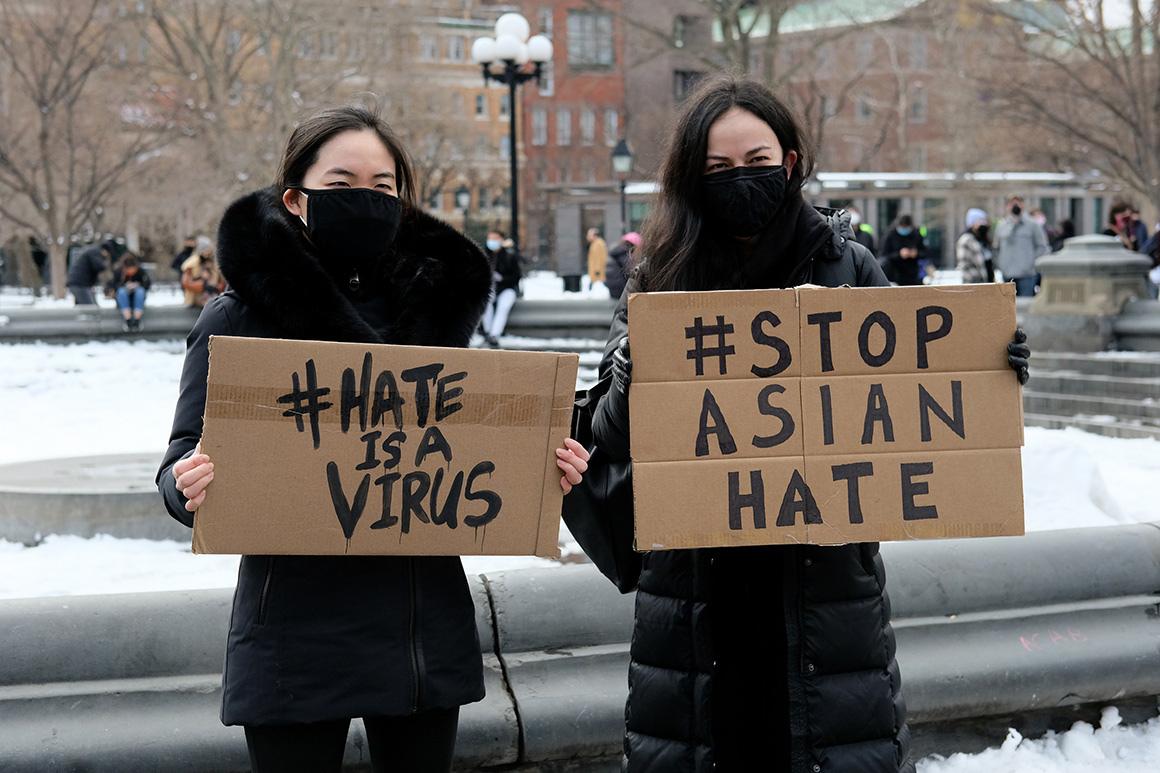
It is part of a national trend: In cities around the country, anti-Asian hate crimes increased by 260 percent in 2021 compared to 2020, according to data gathered by the Center for the Study of Hate and Extremism. The jump was particularly pronounced in large coastal cities with significant Asian populations, said director Brian Levin.
The group Stop AAPI Hate tallied 10,905 hate incidents against Asian American and Pacific Islander individuals nationally from March 2020 through the end of 2021.
In New York in recent weeks, there was the death of Michelle Go, the woman who was shoved in front of a subway train in Times Square. Another woman, Christina Yuna Lee, was the woman stabbed to death in her Chinatown apartment by a man who followed her into her building. And GuiYing Ma died of her injuries after being hit in the head with a rock while sweeping her sidewalk in Queens in November.
None of those cases was initially charged as a hate crime, although Ma’s case is under renewed review by the NYPD.
Legally, hate crime charges require proving that the perpetrator is acting in substantial part because of the race of the victim. That is often difficult to establish in cases where the suspect does not use a racial slur or otherwise outwardly express a racist motive.
But advocates say even a more subtle shift would be helpful: Cops should keep the possibility of a hate crime on the table until they establish a motive.
“Just because somebody doesn’t scream a slur, doesn’t mean it’s not hate motivated,” Wei said. He said victims “have been told by responding officers that ‘this is not a hate crime,’ ‘you did not experience this’ or ‘it doesn’t qualify.’ ‘We’re not pursuing this.’”
Many other incidents are never reported to police.
“You tell a police officer what happens, and they say, ‘Nope, it’s not a hate crime.’ The conclusion’s already been made, which discourages people,” Yoo said. “This is the reason we don’t report things — because they don’t take it seriously.”
Elaine Chiu, a member of the Anti-Asian Violence Task Force of the Asian American Bar Association of New York, and other researchers for the group surveyed more than 200 potentially hate-related incidents that took place in the first nine months of 2021. They found that only three resulted in criminal convictions on hate crime charges.
In an upcoming report, they plan to advocate for changing state law to remove the requirement that a crime must be motivated in “substantial” part by bias. Instead, the law would apply when a crime is committed “in whole or in part” because of the victim’s race, gender, sexual orientation or another protected category.
“The legal standards matter. The words in the statutes matter,” said Chiu, a professor at St. John’s University School of Law.
Jennifer Wu, a partner at law firm Paul, Weiss who represents several victims of anti-Asian violence, said the law is a barrier to more hate crime prosecutions. “Even if prosecutors charged everything as a hate crime, I don’t know that they could prove it under the statute, so there needs to be a change in the law,” she said.
But she said for many victims, especially those who are lower-income or undocumented immigrants, hate crime charges are low on their list of concerns after an attack. “Their first concern is health care, and their next concern is finances if they can’t work. And then they have a concern about immigration,” she said.
In addition to the NYPD overhaul, Adams is calling for prosecutors to stop offering plea bargains to people accused of hate crimes. “No plea bargain should be given to someone that commits a hate crime in this city. We need to stop negotiating these cases out,” he said at the press conference Monday. “We need to beef up our hate crime unit to have our undercover officers in the community so we can zero in on those who are committing these crimes.”
The mayor is also looking to put together an emergency task force to address the intersection of public safety, mental health and homelessness, and make recommendations for policy changes, spokesperson Fabien Levy said. He said Adams believes the AAPI community has “ felt ignored and invisible for far too long.”
“The mayor had made clear that the NYPD and his office have multiple teams focused on hate crimes,” Levy said. “But the current task forces look at crime motivated by bias or hate, and we need to look at ways to go after problems caused by those who are experiencing homelessness and those who have mental health issues which affect public safety.”
The NYPD did not respond to questions about its approach to hate crimes probes.
Wai Wah Chin, the charter president of the advocacy group the Chinese American Citizens Alliance of Greater New York, said the focus should be on policies to crack down on street violence against all New Yorkers.
“There’s a deflection from the crime part to the hate part. If we spend all our time talking about the hate and not the crime, you’re never going to solve the crime part,” she said.
Assemblymember Yuh-Line Niou, a Democrat representing Manhattan, said too few Asian Americans have made it to the highest ranks of the NYPD. She said she mentioned the lack of language skills to the mayor and police commissioner and they responded that cops have access to a translation app — but the app is often inaccurate.
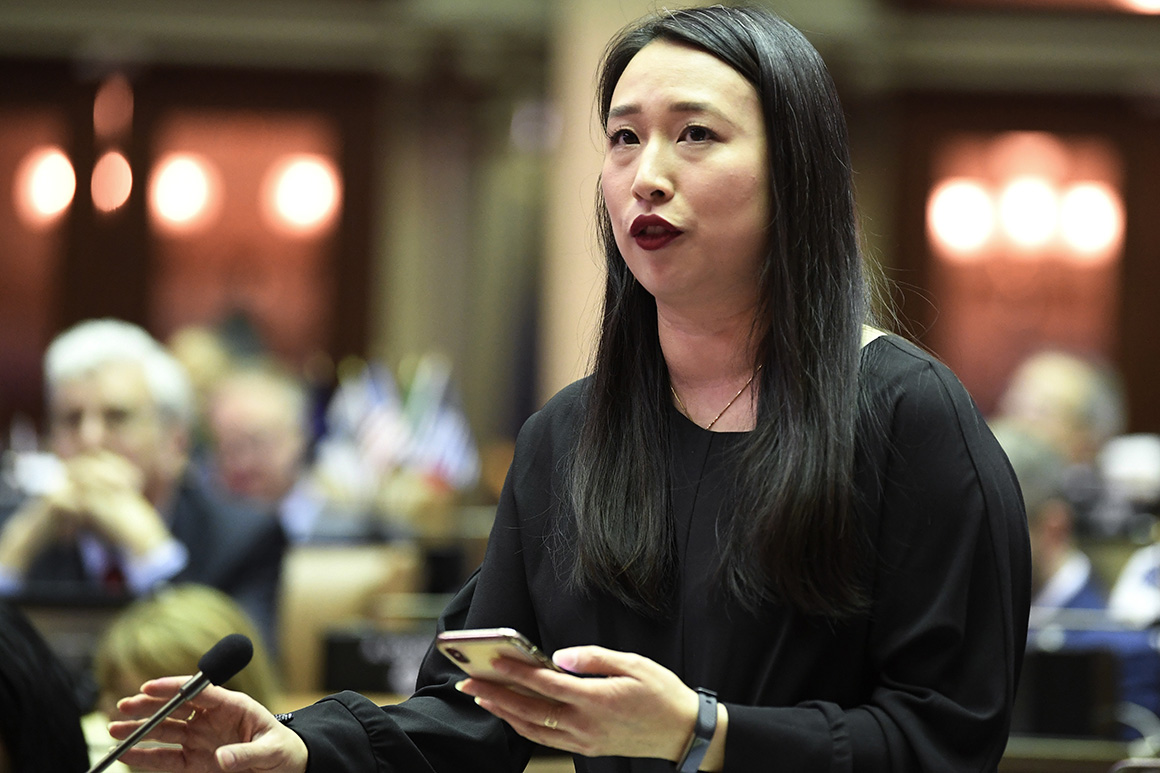
“There’s a huge lack of diversity,” she said. “You don’t know how to talk and treat our communities. It’s really a big issue.”
But Niou said there are changes the city could make beyond policing to quell the attacks — like keeping more homeless shelters open during the day, rather than turning their residents out onto the streets. “There are basic things the city could already be doing,” she said.
At the same time, some residents are protesting plans for new homeless shelters in Chinatown as well as a jail slated to be built there as part of the plan to close Rikers Island.
“They’re trying to take advantage of a community. We are perceived as a quiet community. We don’t cause trouble,” said Jacky Wong, a member of the neighborhood group Concerned Citizens of East Broadway.
While Asian American leaders are calling for more action from local government, some also acknowledge being at a loss for how to stop the broader trend of bias-driven attacks.
“Everyone, including me, has been struggling with what is the message?” Chen of the Chinatown Partnership said. “I don’t know what to say to them. Don’t hit us? Don’t spit on us?”
----------------------------------------
By: Erin Durkin
Title: New York Asian hate crime spike puts pressure on new mayor
Sourced From: www.politico.com/news/2022/03/26/asian-hate-crimes-new-york-adams-00019365
Published Date: Sat, 26 Mar 2022 06:00:00 EST






